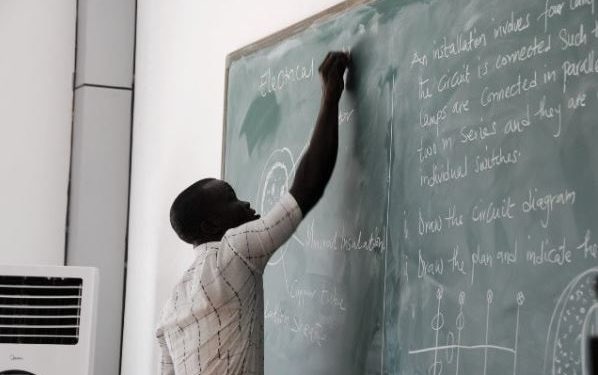Teacher unions in the Western and Western North Regions, as well as the Ghana National Association of Teachers (GNAT), Teachers & Educational Workers’ Union (TEWU), Coalition of Concerned Teachers Ghana (CCT-Ghana) and National Association of Graduate Teachers (NAGRAT) have sworn to resist the passage of the Pre-Tertiary Education Bill in its current form.
Addressing a press conference, the GNAT Chairman for the two Regions, Reverend Charles Akrowey Kaku, said the bill which did not involve the input of the teacher unions has the potential to affect the unified conditions of service among teachers and non-teaching staff due to its confused command structure.
He insisted that the approval of the Bill will hurt the modest gains made in the education sector.
“We the teacher unions, thus GNAT, NAGRAT, CCT-Ghana and TEWU in the Western and Western North Regions are of the considered opinion that education is the key to our national development and any attempt to introduce policies and legislations on education must be done with the active and express involvement of teachers who are the key stakeholders.”
“We call on the President to intervene so we can have a smooth labour front in the education sector because the Bills in its current form will distort the modest gains made in education. Some observations made on the Pre-Tertiary Education Bill show that the Bill as it currently stands seeks to seed the effective responsibility of the provision and management of the Basic schools to the District Assemblies.” he said.
Background
The calls for the suspension of the Bill comes as a reiteration of concerns raised earlier on. Parliament, however, referred the Teacher Unions to the Education Ministry for further engagement.
The government met with the various teacher unions in an attempt to address concerns they have raised over the Bill.
The President of NAGRAT, Angel Carbonu, after the dialogue, was hopeful their concerns will be considered in the final phase of the bill.
“We are discussing the various positions that we hold. We are still of the view that the fundamental basis [of the Bill will cause] problems for education so we are calling on the government to withdraw the Bill. It is not easy for the government to concede on matters like this but we believe we are raising very cogent points.”
Meanwhile, the Education Ministry indicated that the Bill was being used to pursue important reforms that will improve learning outcomes in our institutions of learning for the ultimate development of the country.


Comments are closed.